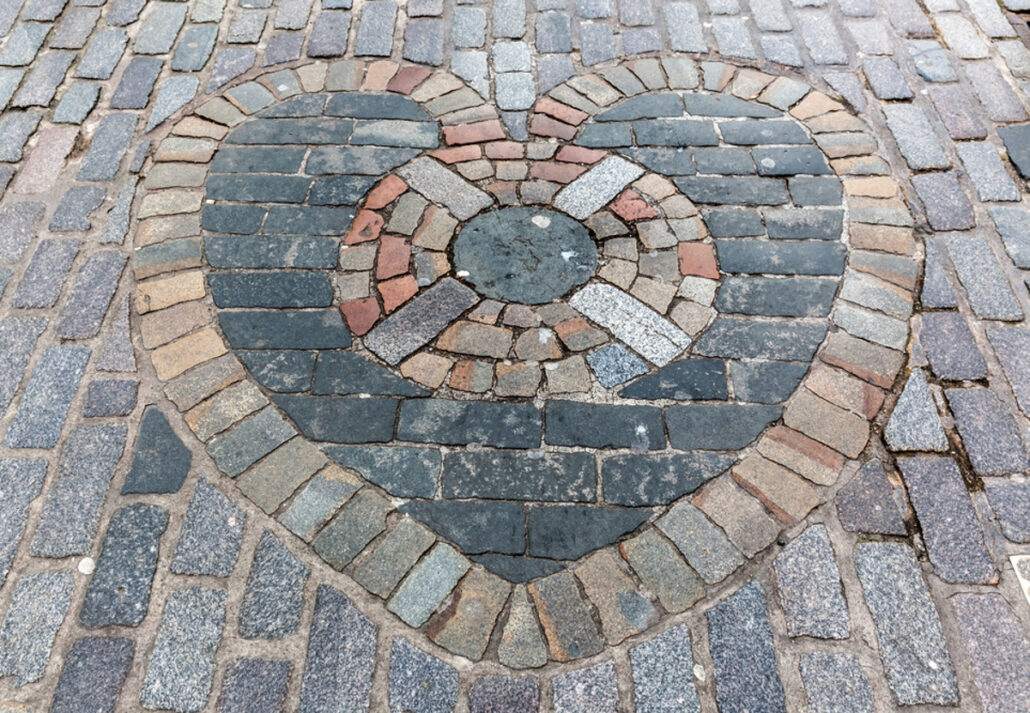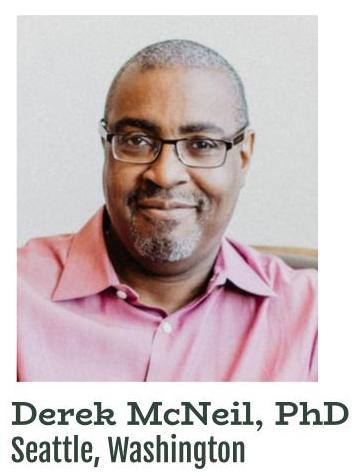See. Do. Be. Free.

Issue 021
An Open Letter to the Community around this year's theme.
Issue 021: Wholeheartedness – “Resilience that Cultivates” by Derek McNeil, PhD
As Street Psalms enters its 25th year of forming grassroots leaders in vulnerable communities, we are inviting friends of our work to reflect with us on their own sense of vocation and call. This month Derek McNeil reflects on our guiding question:
When did your sense of vocation become real to you and what does it mean for you to show up wholeheartedly in your call when confronted with disappointment, failure, despair, and your own half-heartedness?
Dear Friends,
When Kris first asked me to write for your 25th Anniversary, I was honored. I am deeply moved by the mission of Street Psalms and the work you do. But when Kris told me the theme was “wholeheartedness” in the pursuit of vocation and calling, my mind went blank. To be honest, I don’t think of myself as a “wholehearted” person. In my mind, wholehearted people pursue goals without hesitation, distraction, or question – unlike me who at each stage of my vocational journey was full of questions. Perhaps some of you can relate.
My vocational path has been a winding one and I have often approached it half-heartedly. My story holds pivotal moments where, despite my questions, I’ve had to push through. At the center of these moments was a belief that there was something G-d wanted for me. It is this sense of calling and the people who believed in me that helped me weather difficult situations, resist the pulls to fixate on my failures, and learn how to show up wholeheartedly.
My mother was among the first to help call me forth. From a young age, I had a vague notion that I wanted to be a doctor, a desire birthed from an African American woman who hadn’t even finished high school, but wasn’t afraid to dream on behalf of her children. She aspired for me, even when I could not for myself.
By the time I finished my degree in psychology, I recognized I also had a calling to work in ministry. I needed to consider my vocation as a spiritual expression of my commitment to Christ. Wanting to work in a helping profession, I pursued work in the counseling field. The first job I secured was one I didn’t really want: a social work position with older inmates in a maximum security prison.
I applied for the job, but as a psychology major with only a Bachelor of Science, I didn’t expect to really be a viable candidate. At the interview, I relaxed and talked openly about who I was as a Christian and my desire to serve as a counselor as a form of ministry. One of the two interviewers started smiling and the other frowned. The one frowning asked me, in a slightly irritated tone, “Did you know he was a Christian?” pointing to his colleague. “No,” I replied, “but it was important for me to tell you who I am.”
I got the call that evening. What started as a way to practice my interview skills ended with me accepting the job, albeit half-heartedly. Little did I know how much this decision would shape my vocation and call.
The smiling interviewer became my supervisor and friend. Doug Wiegand was a gift to me and helped me learn what it meant to be a healer and counselor. As a Christian working in the counseling profession, Doug helped me learn about myself as much as the actual job.
The work with the inmates, both in prison and on parole, was overwhelming for me. Most of the men I worked with were African American, sixty and older, who had been imprisoned for serious crimes. We had things in common culturally, but they lived lives that were very different from my own. My work was to support these men in any way I could to reduce recidivism and help them prepare for parole. I learned a great deal from these men, including my own limitations, their humanness, their struggles, and how important it was to feel a bit of respect. I also became more aware of the important role family and community play, as those who were doing well and who needed less care from me were the ones with family support. This seemed such an epiphany at the time. It crystallized my worldview as a healer, helping me to understand the importance of our relatedness.
Doug taught me how to care for myself as I tried to support these men, and also the importance of valuing their humanity. He helped me see the work as ministry, even if no word was uttered about “getting saved,” or “becoming a Christian.” I learned how important it was to belong and to have at least one person in your life whom you could rely on; that family was invaluable. This translated into a growing sense of call to do counseling work with families as I continued on my vocational journey.
Years later, I had taught a group of lay counselors at a church in Los Angeles. A former student ended up confiding in me that during the time of the course, she was using cocaine. “That course helped me get off cocaine,” she said. I was stunned. It was the most powerful thing anyone had ever said to me about my teaching. At that moment I thought, if this is what teaching does, I want to teach. Her affirmation added another layer to my sense of purpose and call.
For me, the capacity to be wholehearted is integrally related to the support of people in my life who have helped call me forth and discover my sense of purpose. These disparate stories remind me that I have not walked alone in my pursuit of a calling and, in certain moments, needed someone to be wholeheartedly in support of me. I wouldn’t have dreamed without someone dreaming with me. I have been blessed with these voices and companions who helped me work through difficult times and provided support and direction in pivotal moments. They also allowed me to make meaning of the difficult times, to see possibilities in the midst of grief.
It’s also been in the context of community that I’ve been able to make meaning out of disappointments and develop an orientation of hope around challenges – one where the tough moments are perceived as things we must face and endure to grow. This type of perceptual shift is pivotal for resilience and creating transformative possibilities. The gift of challenges is the lessons learned about how to persist and develop a hopeful expectation while persevering. I’ve learned that wholeheartedness is a type of stubbornness to look for the transforming possibility of G-d in the midst of situations that are not of my liking or my choosing or are simply not what I could’ve predicted. This is not positive thinking in response to the circumstances or a denial of the consequences of my own choices, but a defiant act of inviting the infinite reality of G-d into finite human spaces.
As members of the Street Psalms community, you know the importance of a community that calls you forth and the resilience that cultivates. You could not continue your work without it. I hope my story encourages you to seek out the people and purpose in your life that will help you develop the resilience that will allow you to engage your work wholeheartedly, even when you are presented with challenges, setbacks, and heartaches.
Congratulations, Street Psalms and all your partners in this work, for 25 years of service. It has been quite a journey, and we wholeheartedly believe in you and support you in this transforming labor of persistence and love.
Dr. J. Derek McNeil was named the fourth president of The Seattle School of Theology & Psychology in 2019. He has a PhD in Counseling Psychology from Northwestern University and an MDiv from Fuller Theological Seminary. Prior to his tenure at The Seattle School, Dr. McNeil served as faculty in the PsyD program at Wheaton College Graduate School for over 15 years. Learn more at www.theseattleschool.edu.

